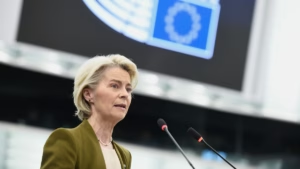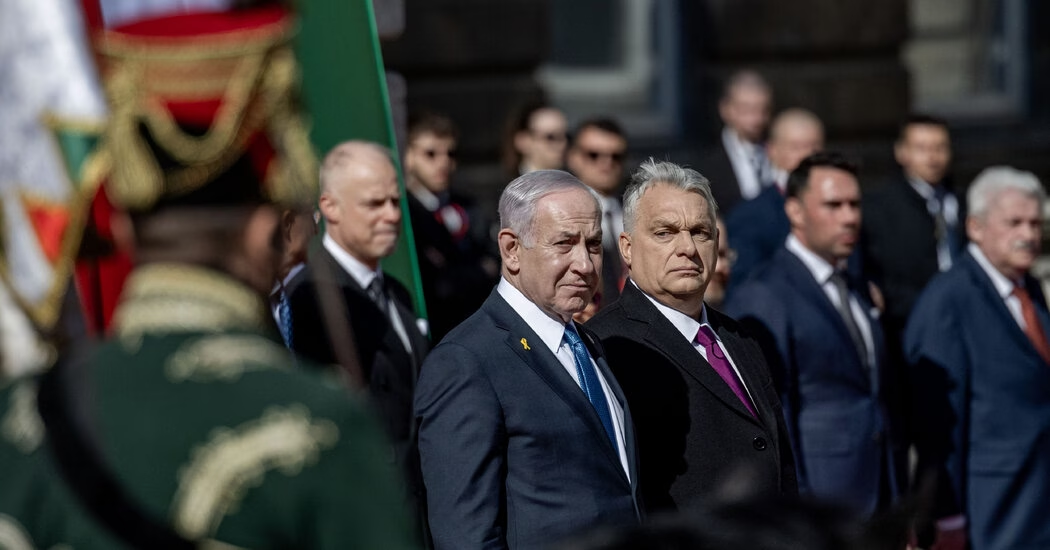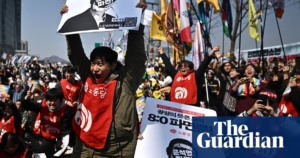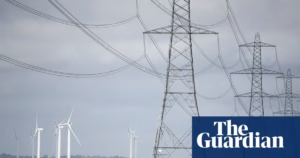Not many countries exist that Israel’s prime minister can visit without facing a risk of arrest. Therefore, the red-carpet treatment given to Benjamin Netanyahu by Hungary — Europe’s only openly “illiberal democracy” — is notably significant.
Following the International Criminal Court issuing an arrest warrant last November for alleged war crimes and crimes against humanity committed by Mr. Netanyahu’s country in the Gaza Strip, Hungary’s prime minister Viktor Orban extended an invitation. Within hours of the Israeli president’s arrival in Hungary, Mr. Orban declared his country’s withdrawal from the court.
Analysts observe several factors tying together the shared interests of Mr. Orban, Mr. Netanyahu, and President Trump.
Alliances: The International Criminal Court, while ambitious and imperfect, represents a global judicial system aiming to enforce human rights. Many liberals champion this institution; conversely, Mr. Orban, Mr. Netanyahu, and Mr. Trump have expressed disdain for it.
Signals: Mr. Orban signals to the world that Hungary acts independently: although a member of the European Union, it is not restricted by it. Signals to China and Russia suggest that Hungary is open for business. To his domestic audience, he makes clear that Hungary is prioritized above all else.
Boundary Testing: Amidst global institutions’ instability and without a new order fully established, the lines between permissible and impermissible actions are blurry.
Leaders vs. Judicial Systems
Hungary is not the first nation to grant Israel special dispensation. The United States and Germany have followed similar paths. Incoming chancellor Friedrich Merz of Germany has refused to arrest Mr. Netanyahu even while remaining committed to the International Criminal Court.
Hungary also isn’t the first Rome Treaty signatory to disregard the court: when President Vladimir V. Putin of Russia visited Mongolia, no action was taken on an ICC warrant against him.
However, Mr. Orban’s defiance of the court reflects his desire to marginalize independent judges, both within Hungary and internationally.
“In essence, some global institutions have become political bodies,” he stated on a Hungarian radio program. “Unfortunately, the International Criminal Court is one of these. It is a political court.”
Leaders and judges — international or domestic — battling for power has become a major political theme in many countries, including Hungary, Israel, Brazil, and the United States.
Since 2010, Mr. Orban has been seen as a pioneer in asserting judicial control. He has appointed loyalist judges to Hungary’s constitutional court and forced others to resign. He’s clashed with European Union courts, criticizing their ‘judicial overreach’ for ruling on Hungarian violations of EU rules.
Denouncing charges of bribery and fraud as a campaign to undermine voters’ will, Mr. Netanyahu seeks to reform the judiciary. He and allies argue that the judiciary assumes increasingly broad authority and fails to represent Israeli society’s diversity.
After being convicted on 34 felony counts before a second term, Mr. Trump claims legal cases against him are politically driven. His administration has recently defied court orders, possibly precipitating a constitutional crisis. In February, he sanctioned ICC officials in response to the warrant for Mr. Netanyahu.
During the Israeli leader’s visit to Hungary, the three leaders discussed the court over the phone. Mr. Netanyahu visited the White House, where his office confirmed the ICC would be discussed.
Kenneth Roth, the founder of Human Rights Watch, commented: “It takes a lawless autocrat like Orban to welcome rather than arrest a suspected war criminal such as Netanyahu.”
Sovereignty First
As Orban connects strategically, he also signals allies, investors, and voters that Hungary won’t be limited by international laws and norms. It shapes an identity, notes a democratic thinker.
“Orban engages in special relationships — with Russia, Trump, and China,” said Ivan Krastev. “He aims to craft a narrative of Hungary as an EU member doing as it pleases; a place for investment due to its sovereignty. A place that can veto sanctions and leave international courts — nearly the only free spirit in the EU.”
Mr. Orban has labeled supporting European leaders “warmongers” for their stance on Ukraine. He openly advocates for re-establishing relations with Russia after the conflict. Welcoming Israel’s prime minister in defiance of international law was another opportunity for him to showcase Hungary’s contrarian sovereignty.
Mr. Krastev views Mr. Netanyahu’s visit as a precedent and possible preparation for a controversial future invitation to someone like Mr. Putin.
In a speech last July, Mr. Orban outlined his grand strategy for Hungary, predicting a world dominated by Asia in the coming decades or centuries.
As a small economy, Hungary will disregard Brussels or Washington directives to isolate Moscow or Beijing.
“We will not involve ourselves in the war against the East,” he said. “We will not join an anti-East technological or trade bloc.”
China’s leader, Xi Jinping, during his visit to Hungary, promised investments and opportunities for Hungarian firms in China.
“We have received an offer from China,” said Mr. Orban. “We won’t find a better one.”
Leaders like Mr. Netanyahu and Mr. Orban are testing limits by disregarding international laws and norms, thanks to a shift initiated by Mr. Trump.
Trump’s allies are discovering the unpredictability of his administration, particularly as “America First” policies can disadvantage their countries.
This is the inherent paradox of “America First” for leaders like Mr. Orban and Mr. Netanyahu: forming alliances with a nationalist leader is one thing, but another is when “America First” puts every other country second.
‘
Source: https://www.nytimes.com/2025/04/08/world/europe/icc-hungary-us-israel.html





